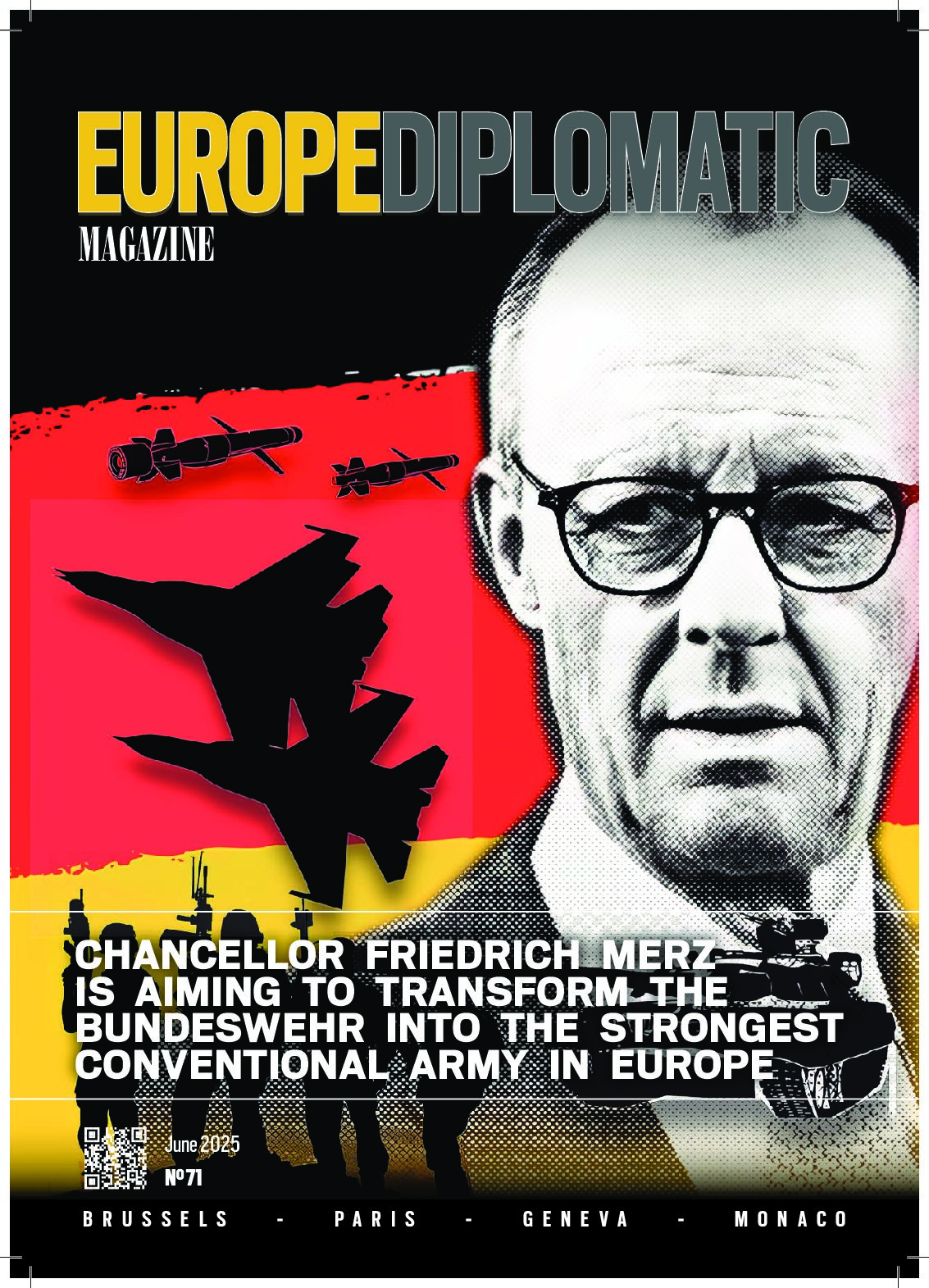Allied Defence Ministers meeting at NATO Headquarters on 21-22 October 2021. © NATO
Russia has become increasingly alarmed at the growth of the NATO military alliance, which is perhaps not very surprising. Russia and NATO have never been friends, exactly, and NATO was formed to provide protection, initially, from the old Soviet Union. Russian President, Vladimir Putin, has issued gruesome threats about the consequences of any further expansion of the Alliance. What he seems not to understand is that those very threats, especially after his unmerited invasion of Ukraine, make NATO seem increasingly attractive for neutral countries close to Russia’s border, or to the borders of countries supportive of Russia. It offers at least a modicum of protection in the event of Moscow getting over-ambitious. That’s why Finland and Sweden, both traditionally neutral countries, now seem certain to apply for NATO membership very soon. Indeed, by the time you read this, they may have already done so.
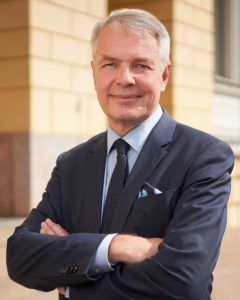
At the time of writing, rumours are circulating that the two countries may decide to announce their formal applications for membership together, or at least within days of each other, but this is not a foregone conclusion as yet. Finland’s Foreign Minister, Pekka Haavisto, has said that no date had been agreed and neither had a final decision been made, despite reports in the media that the two leaders could make an appropriate announcement when they meet in the middle of May. Sweden’s Prime Minister, Magdalena Andersson, wants to read the detailed assessment of her country’s options, currently under hurried preparation, before making a definite move. An application to join NATO, possible jointly with Finland, seems a likely option, however. Trust in Russia has dwindled to almost zero. One thing is crystal clear: if Putin had not invaded Ukraine, carrying out terrible war crimes along the way (which he denies, of course), both Finland and Sweden would have remained neutral. That neutrality has partly been to appease the Russian bear next door: if you live next door to a vicious ursine carnivore, you don’t go and poke him with a stick. However, if he keeps growling at you over the fence and baring his teeth at your family, you may find a small measure of insurance comforting, and acquiring a pack of bear hounds to support you would no doubt provide some reassurance. NATO allies could be those bear hounds.

All of this means, of course, that NATO now looks certain to expand and that this is exactly the opposite of what Putin wants. Indeed, he has warned that if Sweden and Finland sign up to the Alliance there will be, in his words, “detrimental military and political consequences” (“пагубные военно-политические последствия”, as he put it). Given his propensity to attack civilians and bomb non-military targets, there seems little doubt about what he means. The deputy chair of Russia’s security council, Dmitry Medvedev, has already indicated that if the two countries join NATO, Russia will abandon its nuclear-free policy for the Baltic Sea. Getting closer to NATO, it seems, involves getting closer to Russian nuclear weapons, too. Russia has a land border with Finland but also a sea border with Sweden. If Putin’s bully-boy tactics have the anticipated result, it will mean that Russia has a 1,340-kilometre border with NATO, rather than with a neutral country, which would seem to be not exactly in Russia’s – or at least in Putin’s – best interests.
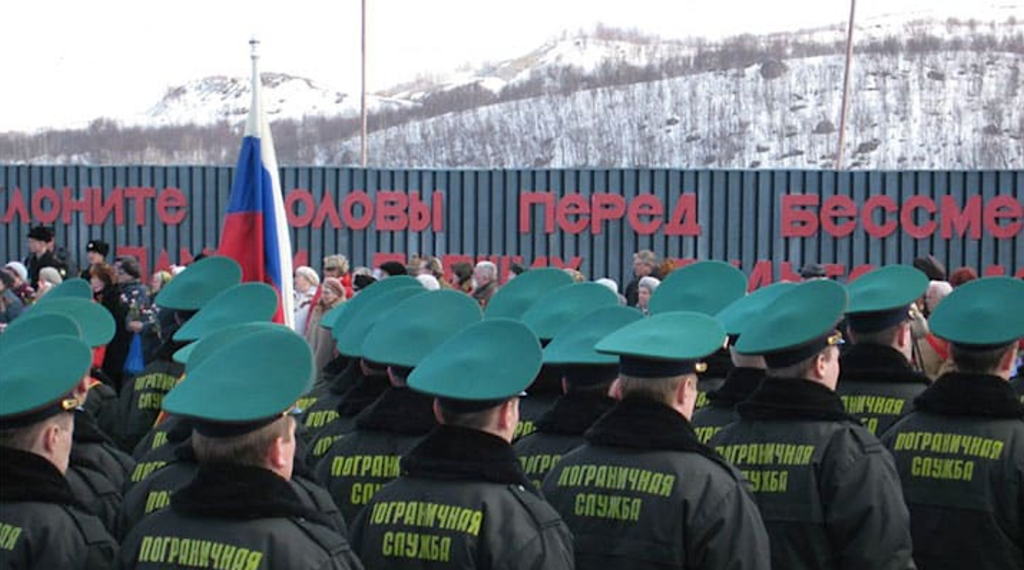
The idea of joining has found support among the populations of Finland and Sweden, however, as they watch the news coverage of the brutal invasion of Ukraine. Nobody wants to invite that kind of hostile interest in their country. For his part, Putin has insisted that Russia was forced to invade Ukraine because the US and its allies were using the Kyiv government to threaten Moscow with NATO expansion. He did not explain how exactly little Kyiv was threatening mighty Moscow, nor what sort of victory Moscow feared.
The neutrality of the two Baltic countries in the years since the Second World War ended is not quite as straightforward as Western media tends to portray it. The ruling elites of both countries were, like many Western powers, bitter opponents of Russia’s 1917 revolution. Both also collaborated with Nazi Germany and, despite their official neutrality, clearly sided with the United States during the Cold War. In fact, Finland didn’t officially exist as a state in its own right. In the 12th century, Christian missionaries tried to convert the Finns, using force, which sounds like a contradiction in terms. It was subsequently invaded several times, by the Swedes but also by Danish forces. Wars and battles rumbled on and in the 18th century Russia invaded and cut off a piece of southern Finland to keep. From then on, the story gets even more complicated, with the Tsar sometimes granting rights and freedoms and at other times snatching them away. The Finnish Parliament, the Diet, was the first in Europe (and only the third in the world, the others being New Zealand and Australia) to permit universal suffrage and in 1906, women were allowed to vote in national elections for the first time. Shortly after Russia’s revolution, Finnish rulers took stern measures to suppress their own working classes. Finland organised its so-called ‘white terror’ to ensure its workers would pose no further threat, with millions of ordinary Finns dying in one-sided battles against armed troops or in concentration camps.
HAUNTED BY THE PAST, FRIGHTENED OF THE FUTURE
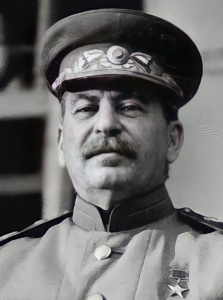
1939 saw the notorious ‘Winter War’ with the Soviet Union, which was heavily criticised by Leon Trotsky, who was no supporter of Joseph Stalin and his nationalist policies, despite his devotion to Marxism. In his “Open Letter to the Workers of the USSR” in 1940, he wrote (and I quote here from the World Socialist Website, WSWS): “(T)he infamous oppressive regime of Stalin has deprived the USSR of its attractive power. During the war with Finland, not only the majority of the Finnish peasants but also the majority of the Finnish workers, proved to be on the side of their bourgeoisie.” The WSWS goes on to explain: “This is hardly surprising since they know of the unprecedented oppression to which the Stalinist bureaucracy subjects the workers of near-by Leningrad and the whole of the USSR.”
Trotsky was no fan of Stalin, an attitude that was to lead to his later murder with an ice pick by Soviet agents working for Stalin. However, the WSWS article also points out that neither Sweden nor Finland cares to mention the so-called ‘Continuation War’, in which Finnish Supreme Commander Karl Mannerheim, a former general in the Tsarist Russian army, played a leading part. He was the one who headed the Finnish white army in 1918 when it exterminated Finnish workers. Mannerheim celebrated his 75th birthday with Adolf Hitler, who paid a surprise visit to Finland to mark the occasion in 1942.
Meanwhile, WSWS points out, Swedish neutrality rested upon its supply of iron ore and other vital raw materials to Nazi forces. Hitler never ordered an invasion because, it’s thought, he saw no point in attacking a country that seemed perfectly happy to supply his military needs in return for money. Sweden’s apparent fondness for Nazi beliefs continued after the war with the adoption of a policy of eugenics, which is explained on the website of the National Human Genome Research Institute (HGRI) as follows: “Eugenics is an immoral and pseudoscientific theory that claims it is possible to perfect people and groups through genetics and the scientific laws of inheritance. Eugenicists used an incorrect and prejudiced understanding of the work of Charles Darwin and Gregor Mendel to support the idea of ‘racial improvement’.” It’s strange that an enlightened country like Sweden went down such a seemingly unscientific path, but it explains in part Communist Russia’s long-term disapproval. Why did the Swedes do it? They seem to have espoused the dreadful idea, kicking around from the early 19th century, that societies could be ‘improved’ by science: “Eugenicists labelled many people as ‘unfit,’” the website explains, “including ethnic and religious minorities, people with disabilities, the urban poor and LGBTQ individuals.” It’s not such a long jump from there to declaring opposition politicians and people who don’t vote for you ‘unfit’, too.
That was then, however, and this is now. Countries change, leaders change, and attitudes do. Until very recently, voters in Finland and Sweden would have been unlikely to support a move to join NATO.
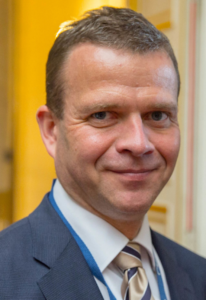
The leader of Finland’s centre-right National Coalition Party, Petteri Orpo, currently in opposition, recently held talks in Washington with President Joe Biden and explained his country’s change of heart. “For 16 years, we have supported NATO membership,” he said, “and now it’s possible,” adding ironically: “Thanks, Putin.” Analysing that comment, it looks rather odd: ‘thank you for frightening us so much that we have been compelled to seek help’. Certainly, simple membership of NATO doesn’t provide a complete answer, according to Defense News: “Sweden has decided to examine a range of security-related options,” says its website, “including deepening Nordic defense cooperation and urging the European Union to develop enhanced defense policies to offer greater military protection to EU member states that border the highly sensitive Baltic Sea and High North regions.” That would appear to be an unlikely development. The EU is a trading body, not one concerned with military matters (at least up to now), despite the mutual defence clause contained in the Lisbon Treaty. That’s good, but it’s not as powerful as NATO’s Article 5, which views an armed attack on one member as an attack on all, leaving allies free to take what the Treaty itself calls: “such action as it deems necessary” and that it includes “the use of military force.”
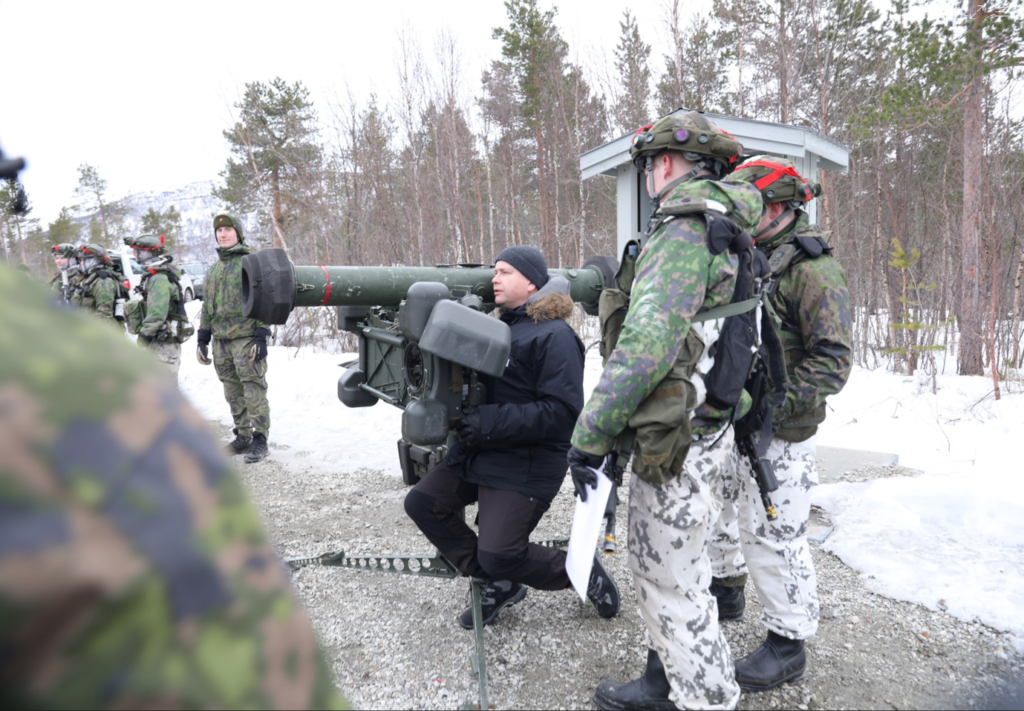
Furthermore, whatever Putin thought he would gain by invading Ukraine, such as the subjugation of the former Soviet state under Russian control, in one sense he would appear to have failed. He has united Western attitudes towards Russian in a way that would have seemed impossible at the start of the year. Poland is supplying Soviet-designed T-72 tanks to Ukraine; Germany – which prefers to remain neutral in inter-country disputes – is supplying around 50 Gepard anti-aircraft vehicles that deter hostile aircraft with flak; Britain is rushing to send AS90 tracked 155mm howitzers and possibly Army 105 towed light guns in addition. In fact, the race is on to provide Ukraine with the wherewithal to hold out against the Russian attack. Canada, France and the US are similarly sourcing defensive armour. Even back in December, Finland placed orders for 64 Lockheed F-35 fighters at a cost of $9.4-billion (€8.82-billion). So, Putin – through his, what? arrogance? misjudgement? sheer ego? fading mental health? – now finds his country facing some of the West’s most advanced weaponry. It has also given Finland and Sweden pause for thought.
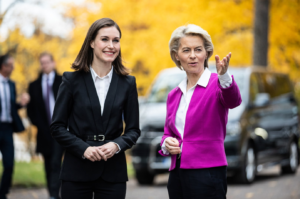
Finnish Prime Minister Sanna Marin told a joint news conference that a decision on NATO membership is imminent. “We need to have a view on the future and we are using this time to analyse and also build common views on the future when it comes to security,” she said. She also pointed out what must be NATO’s main attraction: “The most significant effect would be that Finland would be part of NATO’s collective defence and be covered by the security guarantees enshrined in Article 5.” It provides the sort of defensive measures that some of Putin’s former friends – Russia’s multi-billionaire oligarchs – must have wished they had as Western powers respond to Putin’s brutal savagery by targeting his wealthy pals. And as former Financial Times Moscow Correspondent Catherine Belton exposes in a chilling analysis in her book, “Putin’s People”, there is no shortage of rather suspect ‘nouveau riche’ people in Putin’s ‘siloviki’, or inner circle.
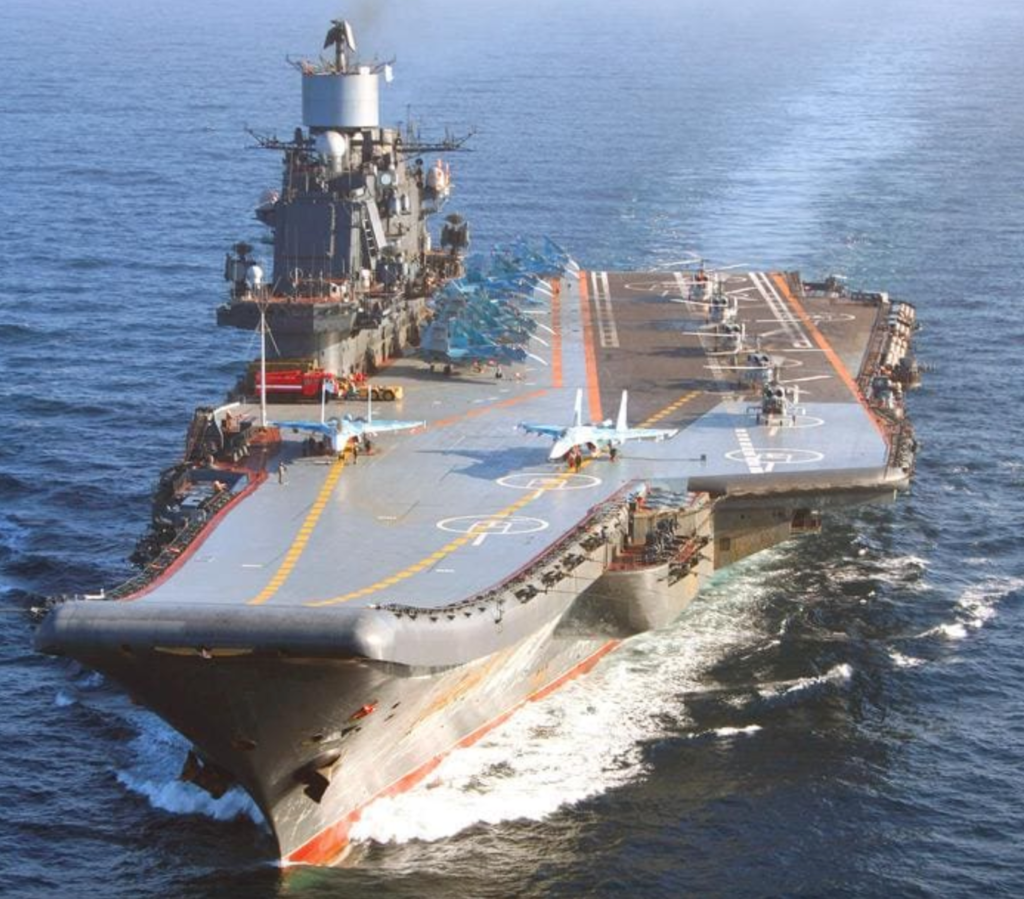
ALL PALS TOGETHER
They include such figures as Igor Sechin, listed by Belton as “Putin’s trusted gatekeeper”, who became known as ‘Russia’s Darth Vader’ for his ruthless methods. It’s a long list and it also includes Roman Abramovich, oil trader and Putin protégé, who used some of his ill-gotten wealth to buy Britain’s Chelsea Football Club. It did well under his leadership, so the fans were mainly happy. But with his close links to Putin exposed, he was disqualified as a director of the club and then barred from even entering the ground, while a court on the Channel Island of Jersey has now frozen some $7-billion (€6.57-billion), or roughly half his total wealth. The days of champagne and caviar, if not necessarily over, have certainly hit a rocky patch. Russian malfeasance that Putin seemed sure he could ignore has come back to bite him and his friends in awkward places. Abramovich shouldn’t look for help from Putin, either. Take the case of Yevgeniy Prigozhin, who opened a fast-food outlet on his release from prison and soon had big-name diners on his premises, including Putin. Later, he opened a ‘troll factory’ for the circulation and promotion of fake news, misinformation and lies. It has been claimed that his trolls helped Donald Trump to get elected. In the old fairy stories trolls were always seen to be evil, and Prigozhin is no exception, it seems.

Viktor Medvedchik, an oligarch said to have been Putin’s main man in Ukraine (also known as ‘the Dark Prince’; this begins to sound more and more like an old Russian nursery story) was captured by Ukrainian forces, who offered to swap him for Ukrainian prisoners. Putin declined, despite Putin being godfather to Medvedchuk’s youngest daughter. Interestingly, Putin had Medvedchuk lined up to replace Volodymyr Zelensky as Ukraine’s leader. Putin accused Zelensky, you will recall, of being a “Nazi” despite him being Jewish. As Zelensky’s prisoner, Medvedchuk’s prospects for eventual leadership would now seem slim and getting slimmer, and given Putin’s refusal to help him, he cannot look forward to a warm welcome if he gets back to Moscow.
Putin’s relationship with his ‘siloviki’ friends is based on money: ‘I’ll help to make you rich, you give me a cut and don’t ever help the opposition’. Coming up against him – as Finland and Sweden seem certain to do – is a dangerous thing. Putin is beyond ruthless. However, it’s not all bad news: with Putin no longer trusted by his one-time KGB pals, his support seems likely to haemorrhage away, perhaps even overtaking the speed at which the fear Putin engenders weakens. However, the oligarchs’ weakness is probably good news for the rest of us, according to the journalist Alan Trapulionis, writing on the Medium news website. “You think Russia would go to war in the middle of Europe if it was any good at capitalism?” he wrote. “No, it would be quietly making iPhones and Netflix shows just like the rest of us.” He’s right: Russia can’t, which seems to annoy Putin, although he takes no steps to rectify things. Trapulionis blames Russia’s economic failure on its ridiculously incompetent, money-obsessed oligarchs. “The new Russians did nothing to put their country on the map,” he notes. “They simply took what they could, and the country as a whole stayed poor.” According to Trapulionis, Russia is no longer capable of producing its own nails because of its business people’s incompetence. Not even Stalin made such a mess of running Russia as Putin has done.
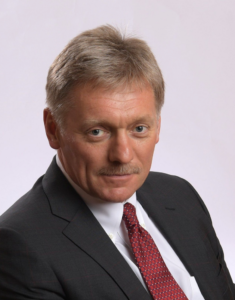
Inexplicably, many Russians remain faithful to him. A young Russian woman I know, resident in the UK, has stopped telephoning her mother in Moscow because the mother believes everything Putin says. “He’s our leader,” the mother sobs down the phone, “he could never lie to us.” She is sure her Oxford-educated daughter must be wrong about the war crimes and brutality she reads about in the Western media and sees on TV news reports. Such credulousness on the mother’s part, encouraged by Putin of course, fuels family arguments.
Returning to the issue of Finland, Sweden and Russia, Kremlin spokesperson Dmitry Peskov has warned the two potential NATO candidates that the NATO alliance remains “geared towards confrontation”, unlike gentle, peace-loving Russia, presumably. Peskov warned Finland and Sweden that NATO “is not that kind of alliance which ensures peace and stability, and its further expansion will not bring additional security to the European continent.” But then, of course, neither does Russia. He also warned that Russia would be forced to “rebalance the situation” in the event of NATO’s Baltic expansion. You’ll have to guess what that means, I’m afraid. Dmitry Medvedev has talked about placing nuclear weapons there, but he’s not really in a strong position to issue threats. There was a time, not so long ago, when Medvedev was seen as the great hope of Russia’s Liberals, but the need to remain in Putin’s dwindling inner circle seems to have forced a rethink on his part.
PARTY TRICKS
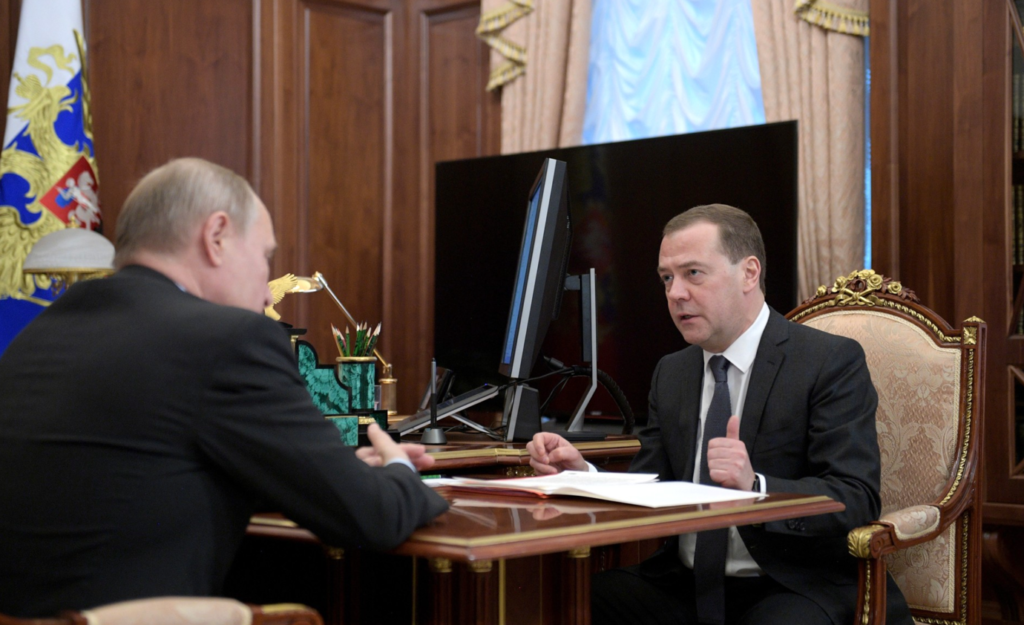
In a blog, Medvedev claimed that Polish antipathy towards Russia stems from the time, 400 or so years ago, when Poland lost control of the Russian throne. This is a strange point of view and ignores all the things that have happened since, including Stalin’s lengthy and repressive rule over the Soviet Union and his murder of Leon Trotsky (and many others). Radio Free Europe reports that: “Timothy Snyder, a history professor at Yale University who is an author and an expert on the region, called the post ‘grotesque’ and said that Medvedev was trying to position himself as a populist speaking for ordinary citizens in Central and Eastern Europe.” Snyder doesn’t accept Medvedev’s position at face value: ‘But he is himself a caricature of the global elite, wealthy for no reason, trying to dictate to people in a foreign country what they should do and how they should think, endorsing a war of destruction in the name of nothing more, in the end, than his own personal comfort,’ Professor Snyder is clearly no fan of Medvedev, a man thought to be willing to say and do anything his boss, Putin, demands.
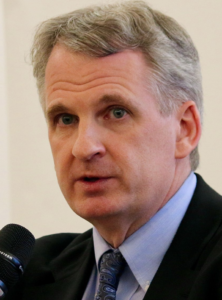
As one Kremlin observer said, if Putin says “jump”, Medvedev replies “How high?”
The lies continue, though: Putin told the media that Russia was “forced to invade Ukraine because the US and its allies were using Kyiv to threaten Moscow”, albeit just with a possible NATO expansion, something his own actions have now more or less guaranteed. He has said he wants a cast iron guarantee that Ukraine will never join NATO as a price of peace. Ukraine has already said it will not join, but that’s not enough for Putin, it seems. It’s by no means certain that even a cast-iron guarantee, cast in platinum and gold-plated, would satisfy him. As a schoolyard bully, Putin would not have been satisfied with extracting the money your mother gave you for your lunch; he’d want to take your watch, your fountain pen and possibly even your shoelaces if he could. It’s this fear of ever-greater demands from Russia that is motivating Finland and Sweden to seek shelter under NATO’s wing.
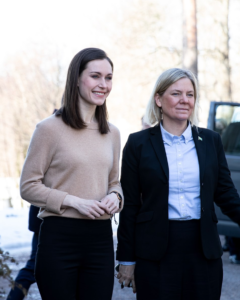
Lately, comments have been made about Putin having developed a tremor. The tremor seems to affect his hands and arms, and there have been suggestions that he may be developing Parkinson’s disease. In media footage, he is most often seen sitting down these days, but when moving about he appears to show signs of what’s called bradykinesia: slow physical movements with shuffling steps. It is a terrible disease, almost as distressing for the victim’s loved ones as for the sufferer. A neighbour of mine had it, making conversation both difficult and slow, with him drifting off the point and sometimes seeming incapable of following the conversation. It was very distressing for his wife, too, of course. Putin’s facial expressions seemed to be frozen in place, too, but he has long had a fixed look on his face. I must admit, though, that my neighbour didn’t try to compensate for his deteriorating condition by taking control of the house next door, against the homeowner’s wishes. He never tried to invade Ukraine, either.
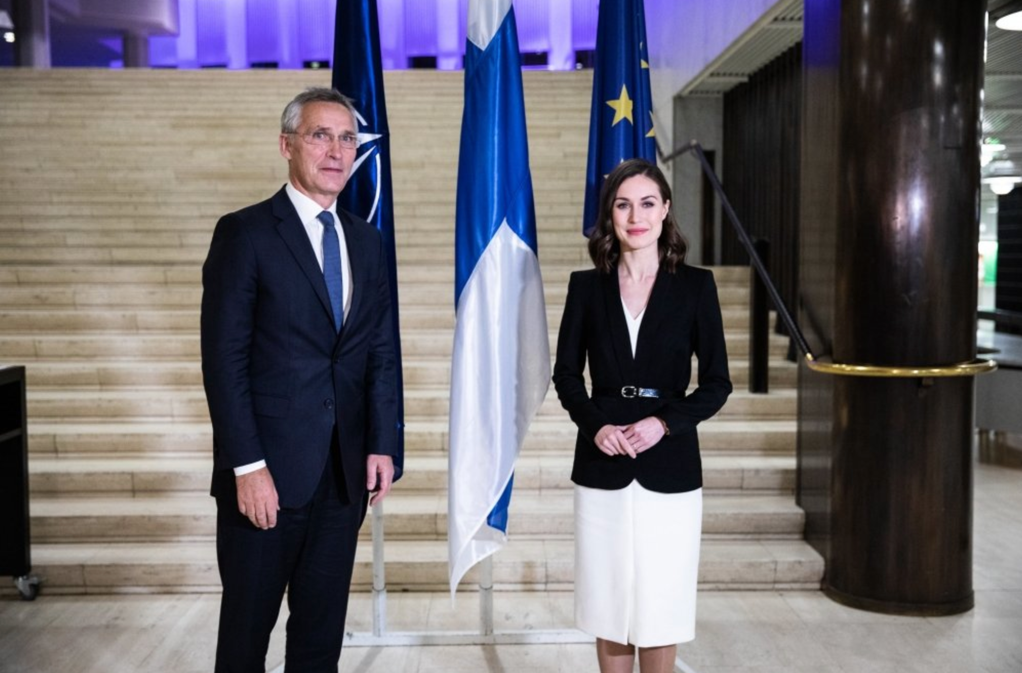
At a meeting held this April at the European Parliament in Brussels, between Jens Stoltenberg, NATO’s Secretary General, and the Parliament’s President, Roberta Metsola, together with other political group leaders, Stoltenberg was asked about Finland and Sweden joining and he replied that membership would be almost certainly granted. “It is of course for Finland and Sweden to decide whether they would like to apply for membership in NATO or not,” he said. “But if they decide to apply, Finland and Sweden will be welcomed with open arms to NATO. Finland and Sweden are our closest partners. They are strong and mature democracies, EU members, and we have worked with Finland and Sweden for many, many years.” Asked if their armed forces would be up to the task, he replied in the affirmative: “We know that their armed forces meet NATO standards. are interoperable with NATO forces, we train together, we exercise together, and we have also worked together with Finland, Sweden in many different missions and operations. So, if they apply, they will be welcomed, and I also expect the process to be quick and that they can then join NATO after the formal process has been finalised.” Not much doubt there, then, it appears.
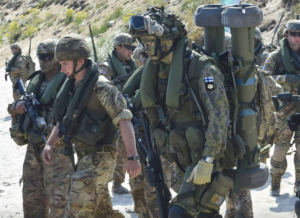
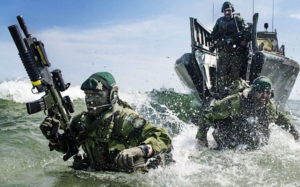
But there have also been calls for the European Union, which has never been a defence body, to form a suitable defensive alliance of its own: “In these days in the European Parliament, we’re also discussing how we can truly establish a proper Defence Union,” said Metsola. “This has long been called for, this would mean also that member states can feel secure. We have article 42.7 of the treaty that would cover also those members that are not members of NATO, but again, here we are talking about an alliance, and shared aims, and core values. And when we look at the discussion that is taking place in Finland and in Sweden and the long-term alliance and partnership with NATO, but also in terms of military relevance and security that could be offered also in the Baltic and Northern Europe area that is something also that in Europe and in the European Union, we can look at in terms of even further integration of mutual protection.” Putin’s tactical error now looks like turning this conglomeration of trading nations (general viewed in much of the popular media as ‘rather dull and boring’) into a fighting force. It’s not what he wanted, I’m sure.
WHERE TO NEXT?
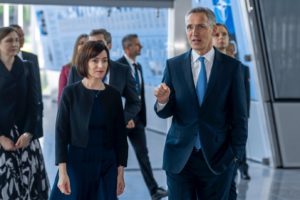
Russia’s unanticipated aggression is also giving pause for thought among those countries not in either NATO or the EU, such as Georgia and Moldova. Metsola had reassuring words for them: “This parliament has always welcomed any country that looks to Europe as its home, that that should be the step that is taken,” she told the EU/NATO press conference. “In fact, we have invited President Maia Sandu (President of Moldova) to address the European Parliament in a forthcoming plenary session, and she has accepted that invitation. And we are also in constant contact with our Georgian partners and also representatives of the Georgian parliament in order to make sure that when that step happens, that you mentioned, we are ready to make our commitment and this parliament has never shied away from it.” In case Putin would like the message to be clearer, Moldova made a formal application to join the EU just one week after Russia launched its invasion of Ukraine. Ukrainian President Volodymyr Zelenskyy has also applied for Ukraine to join the EU, too.
Then there’s the case of Georgia. It had said it would not rush to apply for EU membership, but it has changed its mind. On 3 March, Georgia applied to join. Prime Minister Irakli Garabishvili called the decision: “yet another milestone on the path of European integration of Georgia.” And, of course, it means that Georgia has joined other former Soviet allies in thumbing its nose at the Kremlin. Stoltenberg, when asked about Georgian membership of NATO, also sounded positive.
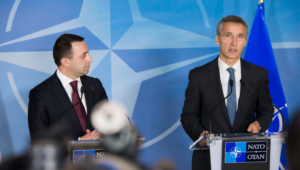
“This is about practical support, this is about political support,” he said in answer to a question about Moldova and Georgia. “Georgia is a very highly valued partner, and also in close cooperation with the European Union. We are looking into what we can do more to work even closer with our close partners in the eastern part of Europe.” As for the more immediate future, partly informed by a growing sense of panic: “Now, let me also add to the question about Finland and Sweden, that I actually speak to the Finnish President later on today, and expect that we will both address the issue of a potential Finnish application for NATO membership, but also the need to find arrangements in this interim period. So, there is no uncertainty about Finland and Sweden’s right to choose their own path, because this is fundamentally about the right of every nation in Europe to decide its own future. So, when Russia tries in a way to threaten, to intimidate Finland and Sweden from not applying, it just demonstrates how Russia is not respecting the basic rights of every nation to choose his own path. So, we are in dialogue with Finland and Sweden. And it’s their decision, but if they decide to apply, Finland and Sweden will be warmly welcomed and expect the process to go quickly.” Yet again, Putin is showing himself to be NATO’s most effective recruiting sergeant. He also seems to be turning the EU into a geopolitical power, which few were expecting.
There is now growing pressure to prosecute Russian soldiers and decision-makers guilty of war crimes, too. “Over the past two months, since Russia’s full-scale invasion of Ukraine,” Ida Sawyer, the director of Human Rights Watch’s Crisis and Conflict division, told an informal meeting of the UN Security Council, convened by the permanent missions of Albania and France, “my colleagues and I have documented the killing of civilians and damage to homes, schools, and hospitals in Kharkiv, Chernihiv, Mykolaiv, and elsewhere from apparently indiscriminate and disproportionate attacks.”

Because of their reliance on cereal crops from Russia and Ukraine, there are reports that a growing number of African countries are now facing hunger. The human rights abuses would seem to be numerous: “In the town of Bucha and other areas that Russian forces held, we’ve found extensive evidence of summary executions, enforced disappearances, torture, sexual violence, and arbitrary detentions, all of which could constitute war crimes and potentially crimes against humanity,” Sawyer told the meeting. “In Mariupol, tens of thousands of civilians have been trapped, as their city was turned to rubble, with little to no food, water, medicine, heating, or means of communication, and no safe way to escape. Many have been forcibly transported to Russia.” We have no certain way of knowing if these allegations are true or not; it seems likely that the Kremlin will deny them.
WHICH WAY TO THE EXIT?
Putin seems to have painted himself into a corner. He must by now suspect that total victory in Ukraine is beyond his grasp. His country’s economic future has been irreparably damaged by the various sanctions the West has applied. For instance, no Russian aeroplane can now land, refuel or even fly over the territory of the EU.
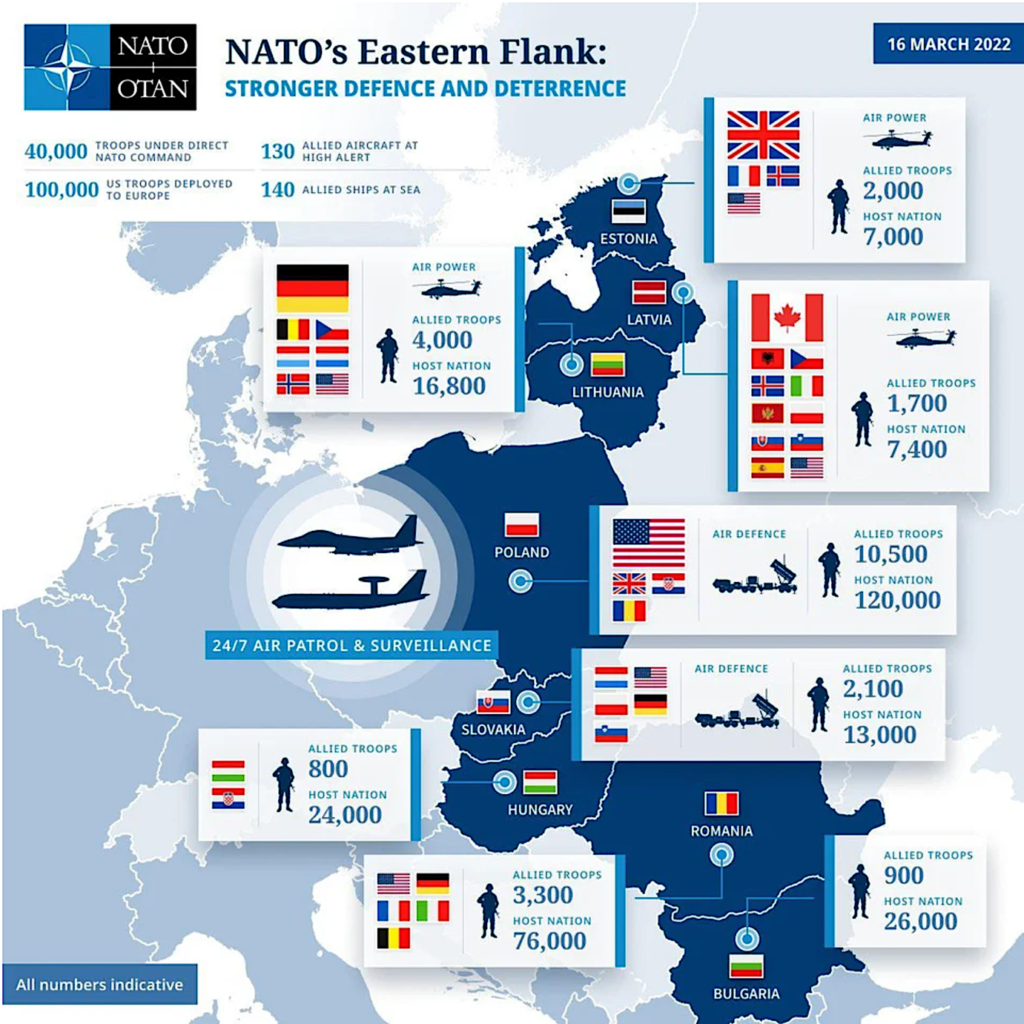
But Putin can’t just walk away, either: the blow to his prestige would be enormous and Russian historians would record him with the same sort of contempt currently reserved for Stalin. Or Hitler. He must be offered a face-saving escape route. We must not forget Trotsky’s Open Letter to the Workers of the USSR, in which he expressed the view that Stalinist policies meant that the supposed “workers’ paradise” of Communism had lost its lustre. The World Socialist Web Site (WSWS) expresses the view that Sweden and Finland had long been planning to join NATO but faced internal opposition, which Putin’s actions have swept away. The WSWS refers to Putin’s invasion as ‘reactionary’, but that’s being kind. If Putin is to be able to end the war and withdraw, he must be given something that looks like some kind of victory to show to his citizens. Perhaps some compromise could be reached over the Swedish island of Gotland. In NATO’s hands, it could be a launchpad for attacks on Kaliningrad, but if it’s held by Putin, it could also enable him to place anti-aircraft batteries and other measures there to deter Western powers from reaching or defending the Baltics. There’s certainly no easy solution, although the application of sanctions on Russia’s central bank certainly gives the rest of Europe leverage. However, Putin cannot afford to simply walk away. The trick now is to ply him with enough sweeties to keep him happy and make him look like a winner. He’s not, but triumphalism is not only unattractive but positively dangerous.
